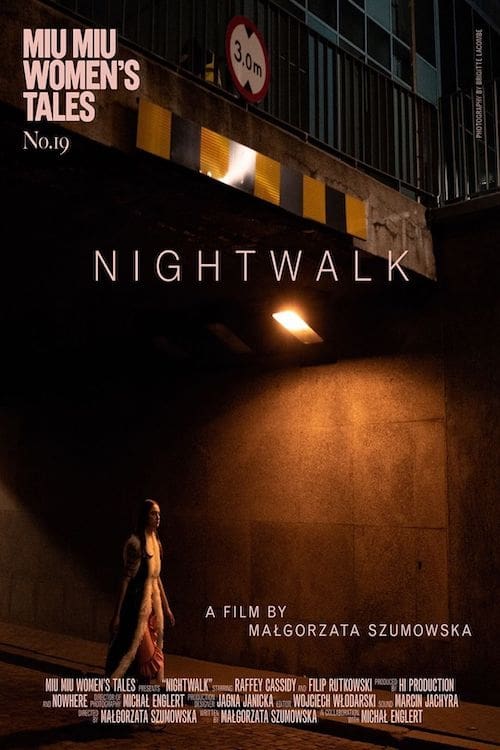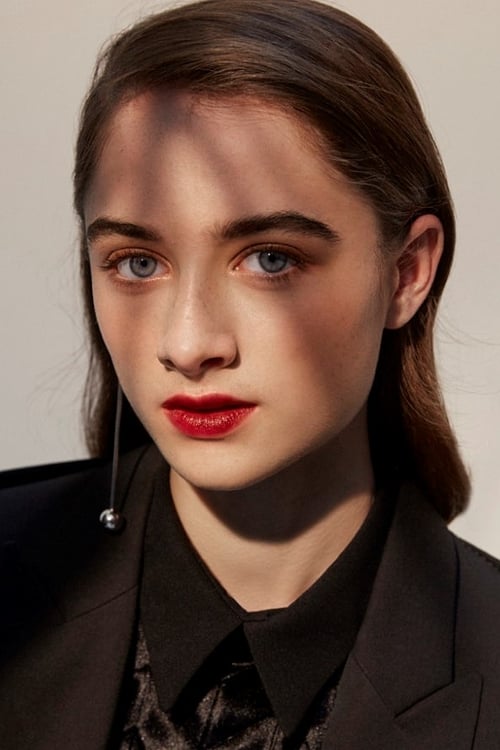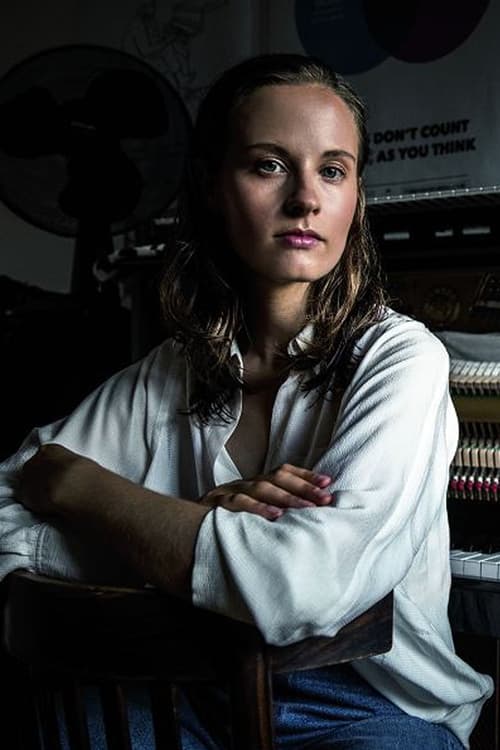Nightwalk (2020)
Genre : Drama
Runtime : 9M
Director : Małgorzata Szumowska
Synopsis
It is night in Warsaw. Two very different homes. In one, a father watches sports lying on the sofa, expecting the son to do the same. In another apartment, a wealthy-looking mother sits at the table to dine with her daughter, completely different from her. At the same time, the boy and the girl embark on a nocturnal adventure of transformation, during which they strip off the various stratifications of gender that they have inherited. The streets of the city are transformed into a liberating walkway. When by chance they meet – face to face, body to body – they mirror each other in silence, offering comfort, safety.
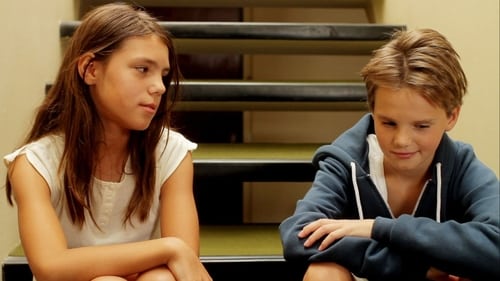
A French family moves to a new neighborhood with during the summer holidays. The story follows a 10-year-old gender non-conforming child, Laure, who experiments with their gender presentation, adopting the name Mikäel.
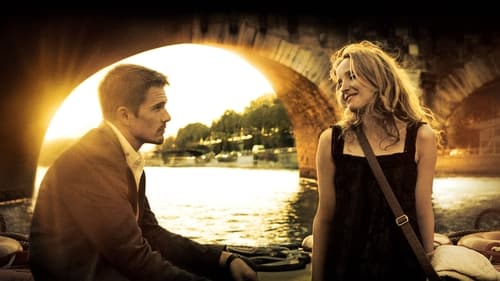
Nine years later, Jesse travels across Europe giving readings from a book he wrote about the night he spent in Vienna with Celine. After his reading in Paris, Celine finds him, and they spend part of the day together before Jesse has to again leave for a flight. They are both in relationships now, and Jesse has a son, but as their strong feelings for each other start to return, both confess a longing for more.
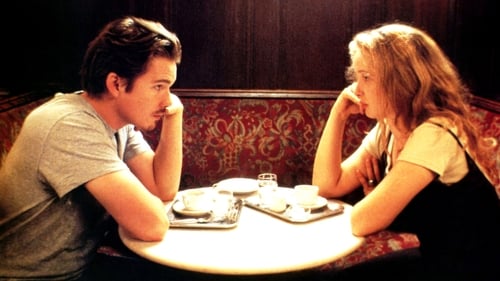
A young man and woman meet on a train in Europe, and wind up spending one evening together in Vienna. Unfortunately, both know that this will probably be their only night together.
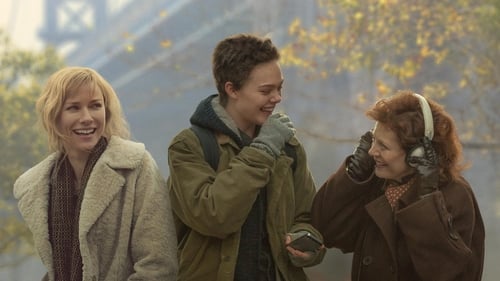
A teenager transitions from female to male, and his family must come to terms with that fact.
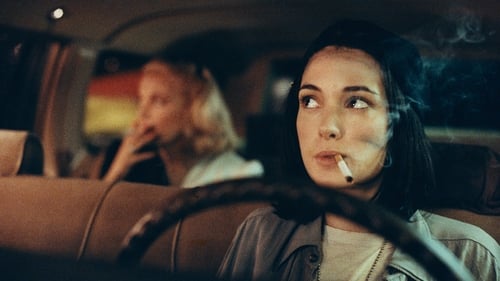
An anthology of 5 different cab drivers in 5 American and European cities and their remarkable fares on the same eventful night.

Filmed over five years in Kansas City, this documentary follows four transgender kids – beginning at ages 4, 7, 12, and 15 – as they redefine “coming of age.” These kids and their families show us the intimate realities of how gender is re-shaping the family next door in a unique and unprecedented chronicle of growing up transgender in the heartland.
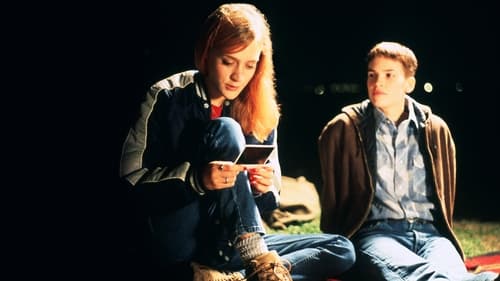
A young transgender man explores his gender identity and searches for love in rural Nebraska.

When a feminist filmmaker sets out to document the mysterious and polarizing world of the Men’s Rights Movement, she begins to question her own beliefs. Chronicling Cassie Jaye’s journey exploring an alternate perspective on gender equality, power and privilege.
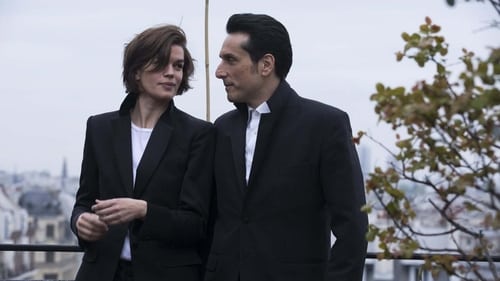
The chauvinist Damien wakes up in a world where women and men have their roles reversed in society, and everything is dominated by women.
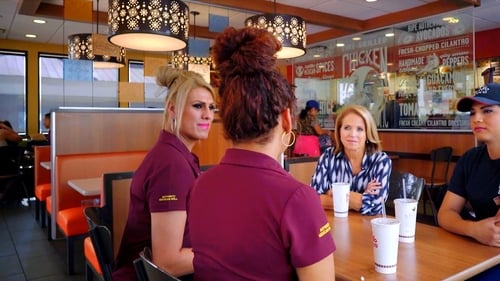
Katie Couric travels across the U.S. to talk with scientists, psychologists, activists, authors and families about the complex issue of gender.
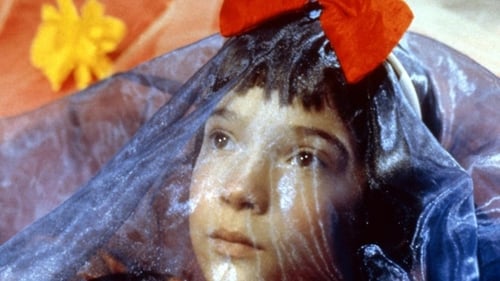
Seven year old Ludovic (Ludo) is transgender and believes god has made a mistake. Assigned male, the film follows her difficult journey to get her family to see what seems obvious to her - that she is a girl.

In a loose retelling of the Revolutionary Girl Utena TV series, Utena Tenjou arrives at Ohtori Academy, only to be immediately swept up in a series of duels for the hand of her classmate Anthy Himemiya and the power she supposedly holds. At the same time, Utena reunites with Touga Kiryuu, a friend from her childhood who seems to know the secrets behind the duels. Utena must discover those secrets for herself, before the power that rules Ohtori claims her and her friends, new and old.
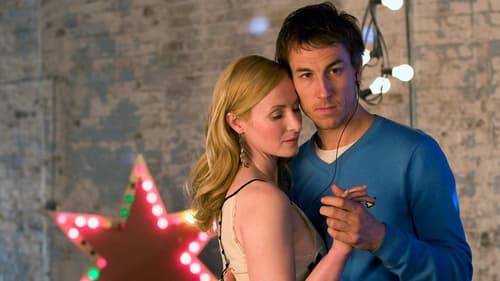
The film follows Will Fletcher, a musician, and Eve Fisher, who works in a pub where he is performing, during one night in London. After Will has saved Eve from a drunken customer at closing time, they stay up all night together, meandering through the streets of London and forging a relationship. Next morning, Eve takes him to see her Alzheimer's-suffering grandmother. The film is often compared to Richard Linklater's films "Before Sunrise" and "Before Sunset", as the style is very similar.

Arguing that advertising not only sells things, but also ideas about the world, media scholar Sut Jhally offers a blistering analysis of commercial culture's inability to let go of reactionary gender representations. Jhally's starting point is the breakthrough work of the late sociologist Erving Goffman, whose 1959 book The Presentation of the Self in Everyday Life prefigured the growing field of performance studies. Jhally applies Goffman's analysis of the body in print advertising to hundreds of print ads today, uncovering an astonishing pattern of regressive and destructive gender codes. By looking beyond advertising as a medium that simply sells products, and beyond analyses of gender that tend to focus on either biology or objectification, The Codes of Gender offers important insights into the social construction of masculinity and femininity, the relationship between gender and power, and the everyday performance of cultural norms.
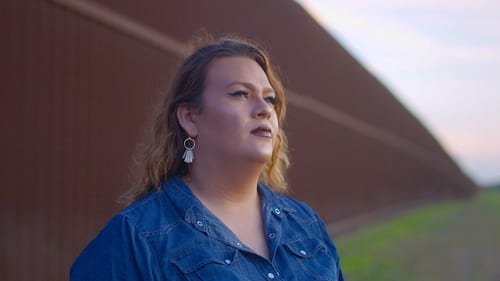
A transgender Iranian-American embarks on a road trip to discover the everyday realities of being trans in conservative states across the United States. As he travels through some of the country’s most anti-trans states, he uncovers the struggles and triumphs that define being trans in America today.

Ash Nielsen is a teenager who is struggling to come to terms with being nonbinary, as well as having to navigate bullying at school.

What does it mean to be awake in a world that seems satisfied to be asleep? Kris and Michal push their experiences of life and love to a breaking point as they restlessly roam the city streets in search of answers, adrift in the euphoria and uncertainty of youth.
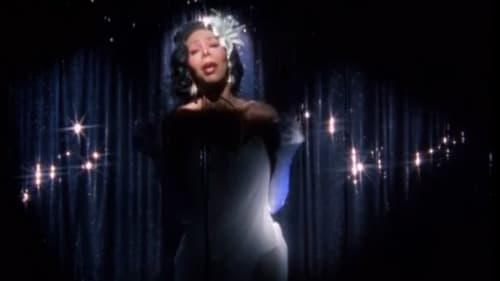
Portrait of the last year of the life of famous New York drag queen Consuela Cosmetic.

Soon after New York state passed a 2015 law that health insurance should cover transgender-related care and services, director Tania Cypriano and producer Michelle Hayashi began bringing their cameras behind the scenes at New York’s Mount Sinai Hospital, where this remarkable documentary captures the emotional and physical journey of surgical transitioning. Lending equal narrative weight to the experiences of the center’s groundbreaking surgeon Dr. Jess Ting and those of his diverse group of patients, BORN TO BE perfectly balances compassionate personal storytelling and fly-on-the-wall vérité. It’s a film of astonishing access—most importantly into the lives, joys, and fears of the people at its center.

How do we represent the ideas of gender? This short reflects about this topic, as we see an unidentified character, suited up, and with a paper bag over his head, walking down the hallway of its high school.
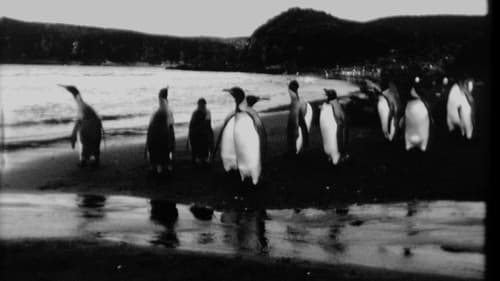
A hypnotic and slow-burning journey through the austere landscapes of the island of South Georgia and the Antarctic Peninsula. Shot on black and white super 8 film as a series of mostly static tableaux over a period of 20 days during the waning days of the Antarctic Summer, the film is a startling look at life at the edge of the world.

A busy attorney, worried that his anorexic daughter Olga, who is still grieving her recently deceased mother, might try to harm herself, sends her to see a psychiatrist who's dealing with her own loss in an unusual way.

The contemporary story of a priest who launches a centre for troubled youth in a small parish. He is a good priest and is well-liked by his congregation, which remains unaware of his complicated past.

In 2015, Tsai Ming-Liang was once again invited by the Hong Kong International Film Festival to make the opening short film. This time, he selected Shibuya station in Tokyo as his main filming location and invited the famous Japanese actor Masanobu Ando to appear alongside Lee Kang-Sheng. They sleep separately at a capsule hotel and cleanse themselves at a public bath. Their fatigued bodies yearn for sleep but restless minds keep them for falling asleep. "No No Sleep" won the Best Director Award at the Taipei Film Festival.
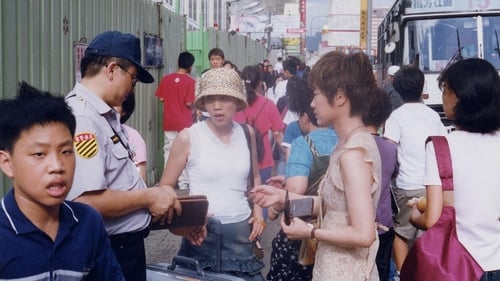
A young woman wandering around meets a young man going to a casting call for a pornographic film.

The ninth short film of the Miu Miu’s Women’s Tales series reflects Alice Rohrwacher’s attention to the surreal world of ordinariness and exceptions.
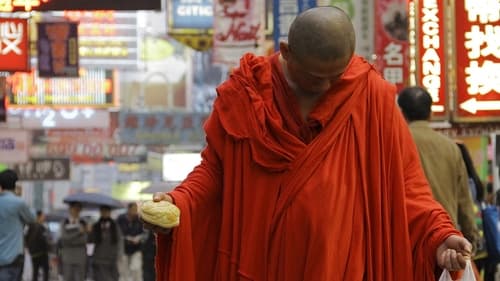
In 2012, the Hong Kong International Film Festival invited Tsai Ming-Ling to make the opening short film. Having grown up with Hong Kong's popular culture, Tsai Ming-Liang decided to pay homage by making a "Walker" film, contrasting the Walker's slowness with the frenzied pace of Hong Kong's cosmopolitan life. The film ends with a song by Hong Kong actor and singer Samuel Hui, who was Tsai Ming-Liang's idol during his youth. The film was invited to be the closing short film for the Cannes Film Festival in 2012.

Four actors go to a cabin in the woods to write, direct, and act in a film that will jump-start their careers. Their idea is a horror film about a man with a bag over his head, but what happens when that man mysteriously shows up?
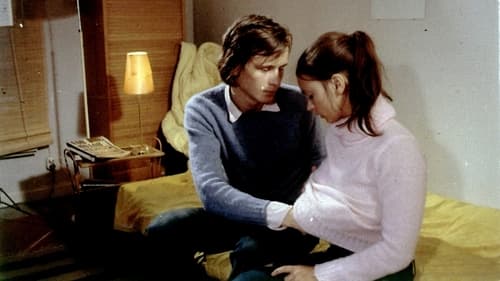
Anita, a young woman with a troubled childhood and a hunger for love, finds a soul mate in Erik, a kindly college student.
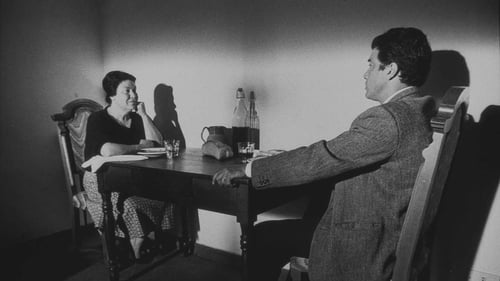
A man returns to visit his native Sicily after living in New York for a long time. He learns about the Sicilian way of life from stylized conversations with an orange picker, his fellow train passengers, his mother, and a knife-sharpener.

Gabino, Luisa and Paco share a small apartment in Mexico City. With no money and nothing to do they decice to leave the city.

Carmen, by Chloë Sevigny, is the 13th commission from Miu Miu Women’s Tales, the short-film series by women who critically celebrate femininity in the 21st century. Carmen has a loose, voyeuristic, improvisational mood that reflects Sevigny’s interest, making a short-film about process, being a woman, celebrity and ego.

Carefully shot in black and white, All Things Were Now Overtaken by Silence is a meditation on the filming of a strange play: a fascinating monologue by actress, director, performance artist and political activist Jesusa Rodriguez of Sor Juana Ines de la Cruz’s poem First I Dream.
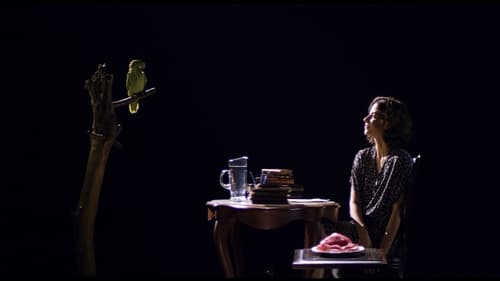
A delicate and tenacious writer, widowed three years ago, engages in frequent conversations with a parrot. However, she’s always observed by a large portion of raw meat.

Minotaur takes place in a home of books, of readers, of artists. It’s also a home of soft light, of eternal afternoons, of sleepiness, of dreams. The home is impermeable to the world. Mexico is on fire, but the characters of Minotaur sleep soundly.

A series of auditions is taking place in a museum-like living room. Various men improvise or deliver prepared lines, rehearse gestures and slogans, aim guns, and collapse as if mortally wounded. The theme of revolution is repeatedly invoked. In between, there are scenes of a desert landscape. Three men seeking to join the Mexican Revolution at the beginning of the last century have lost their way. Conflicts smolder among them, water is running low, and mutual mistrust is beginning to take hold. Placing the reenactment of a possible historical event alongside the preparations for it serves to underline the theatricality of every cinematic account of history. Moreover, on a kind of playful meta-meta-level, the scenes in which the actors feel their way through set pieces from a Beatles song or standard battle slogans allow the viewer to witness the simultaneous construction and deconstruction of a collective myth of revolution.

"[...] Looking back, I now feel that I understand that the film was my response to the two entities, Man and Nature competing for space in the local vicinity where I lived, ergo layers of images and sounds compete for attention in the film. Where fields used to be, they were being replaced with factories, power stations, and wind farms. My film is an irresolution. Are any of these things beneficial enough to be warranted? Isn't it all a folly? I don't know. It is not a negative film, nor a positive one. Just a comment. A comment that my subconscious commanded me to make; inspired by the locations that I passed... and the locations that have passed. At the end of the film, a human hand reaches out, as if trying to find a resolution, a reason for anything and everything - but everything, even the nature seems so fake now, like trying to feel the flesh of a mere projection..." - Scott Barley

A silent short, focusing on the beauty and melancholia of seeing horses in the cold fog, and the metaphors that manifest, as time passes.

"Retirement. My retirement. After a long stretch of intense work on a project that I wasn't passionate about, I finally had a little time to make something I truly wanted. Solitude. A subtle use of machinima alongside HD video." Scott Barley

easy love is the experimental fiction debut of Tamer Jandali. His way of working shifted between documentary and fiction when he followed seven men and women from Cologne on their search for a balance between emotional security and sensual fulfillment. In four months of shooting those protagonists acted as braver versions of themselves. The camera opened the possibility to pursue their unlived dreams, fears and fantasies and ultimately experiencing them in reality. By shooting in a small team, always on the edge between documentary and fiction, Tamer Jandali created space for intimacy and a new form of cinematic authenticity.
